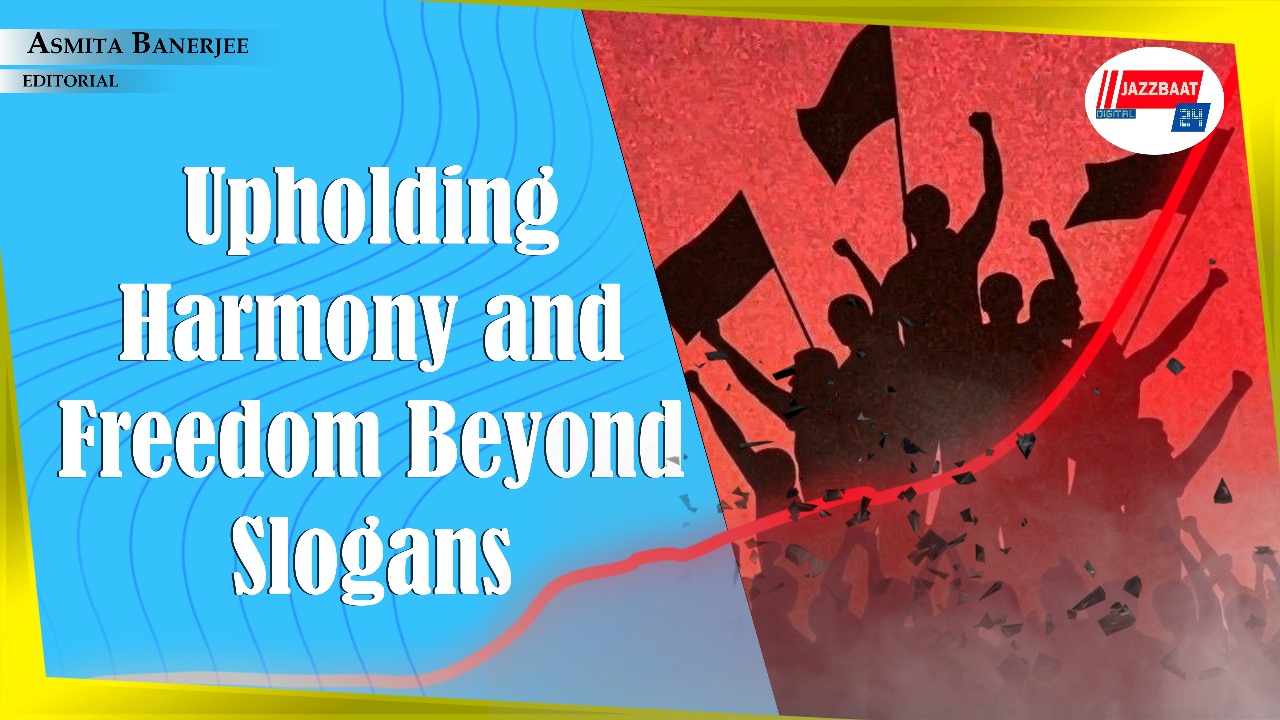
In recent months, India has witnessed disturbing episodes centered around the expression "I love Muhammad," which has unwittingly become a flashpoint for intense communal conflict. What began as a peaceful declaration of faith by many Muslims has spiraled into violent confrontations, police crackdowns, and widespread social unrest. A recent clash during the Garba celebrations in Gujarat, sparked by a counter-slogan "I love Mahadev" posted online, is emblematic of tensions that are now threatening the very fabric of India’s pluralistic society.
The roots of this unrest lie not in the slogans themselves, which reflect faith and identity, but in the volatile environment cultivated by deep-seated mistrust and politicization of religious expression. The Garba incident saw stone pelting, arson, and injuries, a stark reminder that what should be moments of celebration and community are turning into scenes of violence and fear. This situation is further aggravated by the disproportionate legal actions taken against those expressing religious devotion, including mass arrests, alleged use of force, and discriminatory treatment.
Religious freedom is a cornerstone of Indian democracy, enshrined in the Constitution to protect the rights of all citizens to practice and express their faith without fear. Yet, increasingly, this freedom is under siege. Peaceful expressions such as "I love Muhammad" or "I love Mahadev" are no longer just phrases; they have become litmus tests for loyalty and belonging, weaponised to justify suppression and division. The state’s role should be to safeguard all communities from harm and ensure equal protection under the law, rather than to criminalize expressions of faith or allow public order to be used as a pretext for targeting minorities.
The repeated incidents of escalating violence like clashes, vandalism, and even targeting of law enforcement underscore a critical failure of leadership at multiple levels. Politicians and community leaders have a responsibility to de-escalate tensions, promote dialogue, and uphold secular values rather than stoking rivalry for electoral or ideological gains. Citizens, too, must rise above provocation, refusing to let slogans become reasons for hatred or retribution.
What should not happen is the normalization of fear and discrimination disguised as law enforcement or public order measures. The destruction of homes, arbitrary detentions, and silencing of peaceful voices undermine social cohesion and the rule of law. Similarly, the selective enforcement of laws, where some religious expressions are tolerated while others face penalties, gravely harms the nation’s democratic promise.
India’s strength and uniqueness lie in its diversity, in the peaceful coexistence of myriad faiths and cultures. Protecting this pluralism requires vigilance, courage, and an unconditional commitment to justice and equality. It means fostering environments where a person can declare "I love Muhammad" or "I love Mahadev" without fear of reprisal or violence. It means rejecting hate speech, communalism, and any attempt to divide citizens on religious grounds.
As violence and hostility take their toll, there is an urgent need for healing and for recommitting to India’s founding principles of freedom, equality, and fraternity. Only then can the voices of peace and love outlast the clamor of conflict and fear.